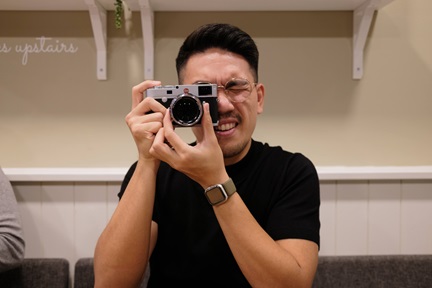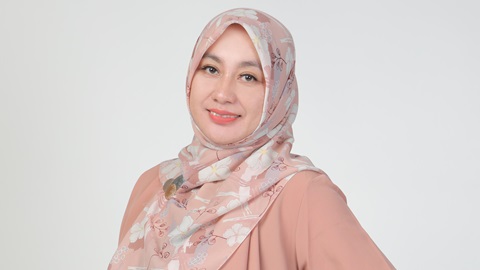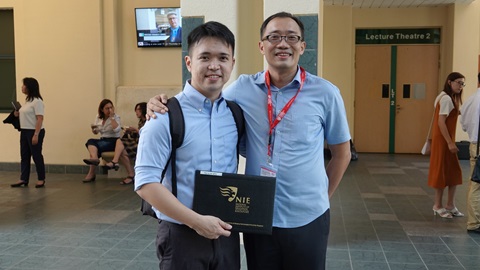He studies the impact of teenage friendships in schools
NIE Master of Education graduate Koh Wei Xun is using his developmental psychology knowledge and research skills to empower teachers in classrooms.
When Mr Koh Wei Xun was a private educator, he saw first-hand how poor socialisation skills in young students negatively impacted their well-being and academic performance.
“These kids may have the capacity and capability to do well, but they suffered because they had difficulty interacting with their peers,” he says.
Socialisation and peer relationships are now under the spotlight as the nature of interactions have changed following the uptick in social media usage among teenagers.
With lesser time spent in face-to-face engagement with peers, it is more pressing to understand adolescents’ friendship patterns and interactions.
“We need to know how our younger generation interact with and influence one another, so that we can nudge them in the right direction to positively impact those around them,” Mr Koh explains.
In 2020, while working as a research assistant at the National Institute of Education (NIE) and pursuing his Master of Education (Developmental Psychology) there, Mr Koh signed up for a research project which explored the nature of friendships in secondary schools to address these concerns.
The MEd (Developmental Psychology) programme, a multi-disciplinary field that shares ground with education and social sciences among others, has prepared Mr Koh to take up this new challenge at work.
“There was a lot of experiential learning involved and the lecturers made sure that information was suitably delivered. Much thought was put into the course content and structure, and it shows when you see how engaged the students are during class activities,” he says.
The broad scope of the programme, spanning both cognitive and emotional aspects of developmental psychology, has provided valuable knowledge and theoretical frameworks to support Mr Koh’s research work at NIE. More importantly, the rigorous courses have also equipped him with core psychological methodologies and an analytical mind.
Mr Koh is now adept at translating and sharing what he has learnt in class to address issues such as students’ social relations, pedagogical considerations, and student well-being in a real-world classroom environment.
“It feels especially rewarding for me to be able to collaborate with teachers using these methods to help them improve their practices,” he says.
CUSTOMISED LEARNING
People are often surprised to find out that Mr Koh’s background is actually in business, having graduated with a degree in Business Management in 2017.
“It was only when I pursued my MEd at NIE that I became certain that education research was what I was really passionate about. It’s an area where I could add value to the community – more so than in other fields,” he says.
Education research is the scientific field of study that examines education and learning processes, as well as the human attributes, interactions, organisations, and institutions that shape educational outcomes. Research in the field has enabled significant progress to be made in curriculum development and reform, educating learners with difficulties, and adapting methods of instruction to the needs and preferences of individual learners.
Mr Koh notes that the MEd (Developmental Psychology) is distinctive. Besides the core courses, learners have the flexibility to choose and customise electives that they feel will value-add the most to their professional lives and careers. “I can position myself as a researcher concerned with exploring new tools and methodologies to bring about fresh perspectives and drive interdisciplinary research work,” he adds.
While most of Mr Koh’s course-mates were teachers from the Ministry of Education, there were also others from different fields and industries such as the sciences and arts, performing arts, educational management - and even the Singapore Prison Service.
“The underlying thread bringing this diverse group of people together is the understanding that education is not only about transferring knowledge from teacher to student,” he says.
“It is about shaping students to achieve the best version of themselves so that they can contribute to society in their own ways.”
Find out more about NIE’s graduate programmes.
Read the original article here.
Source: The New Paper © SPH Media Limited. Permission required for reproduction

.tmb-listing.jpg?Culture=en&sfvrsn=24ae80b3_1)




